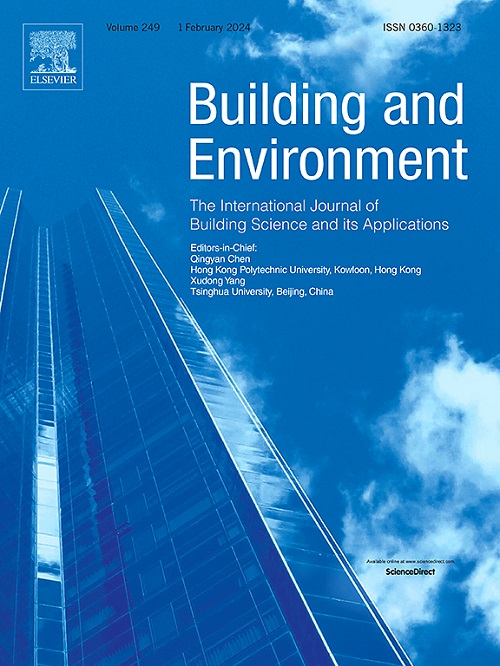“A computational approach for integration of greenhouse and “Shanashir” to enhance thermal comfort of occupants, utilizing NSGA-II algorithm”
IF 7.1
1区 工程技术
Q1 CONSTRUCTION & BUILDING TECHNOLOGY
引用次数: 0
Abstract
To improve the thermal efficiency of solar greenhouses while enhancing the comfort of building occupants, this study proposes a model that is designed to optimize the characteristics of this passive system. This study focuses on determining the ideal integrated configuration that optimizes the performance of the system for greenhouses and Shanashir during both cold and warm seasons. Facade coverage percentage, depth, window-to-wall ratio (WWR), and lattice panel porosity were selected as independent parameters. The dependent variable was the building's occupants' thermal comfort deviation. The computational method was implemented to generate and evaluate a variety of design alternatives. Colibri was employed as a brute force method, and a genetic algorithm was subsequently employed for optimization. The EnergyPlus engine with Honeybee plugin was used to simulate. 51,150 options were evaluated on the first day of each solar month, the coldest and warmest days, and annually. In Tehran, considering the BSk Koppen climate, 60% facade covering, 0.50–1 meters depth, 40% WWR, 25% south facade panel porosity, and 0% roof porosity would be one of the optimum static configurations. This solution reduced thermal comfort deviations by over 75% annually, eliminating them on the coldest day and reducing them by 45% on the warmest day. Consequently, this system can significantly contribute to the energy conservation of both new and existing buildings. The proposed method can be used for more than just optimization for similar systems in a range of places and times.

求助全文
约1分钟内获得全文
求助全文
来源期刊

Building and Environment
工程技术-工程:环境
CiteScore
12.50
自引率
23.00%
发文量
1130
审稿时长
27 days
期刊介绍:
Building and Environment, an international journal, is dedicated to publishing original research papers, comprehensive review articles, editorials, and short communications in the fields of building science, urban physics, and human interaction with the indoor and outdoor built environment. The journal emphasizes innovative technologies and knowledge verified through measurement and analysis. It covers environmental performance across various spatial scales, from cities and communities to buildings and systems, fostering collaborative, multi-disciplinary research with broader significance.
 求助内容:
求助内容: 应助结果提醒方式:
应助结果提醒方式:


